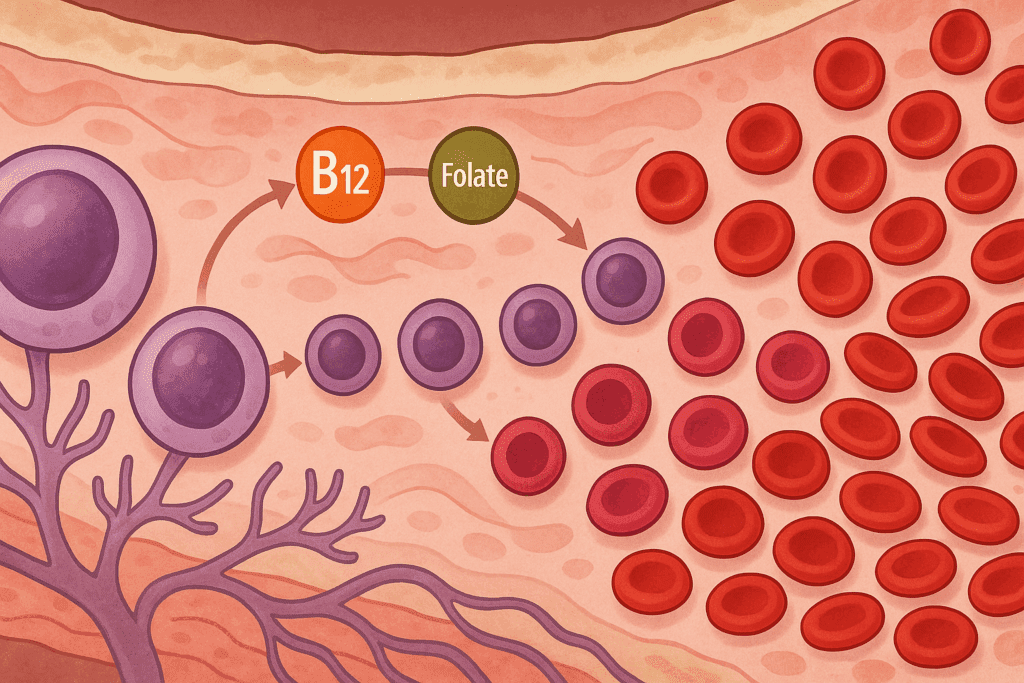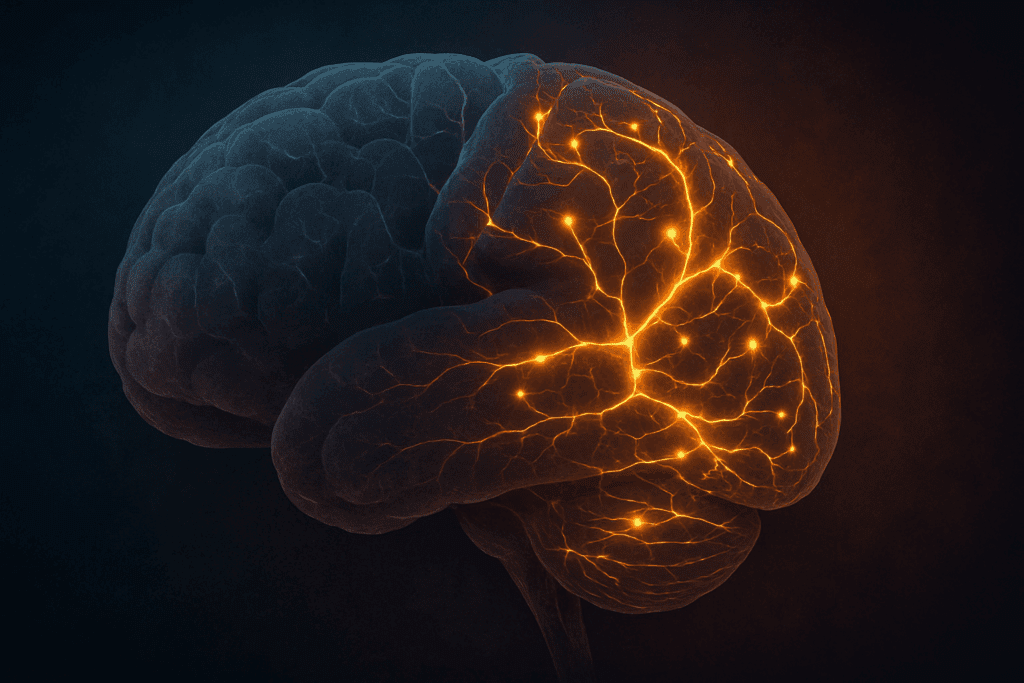In the complex tapestry of human health, a seemingly simple question can unravel a multitude of underlying physiological truths. When someone experiences persistent dizziness, unexplained fatigue, and shortness of breath, the immediate assumption may lean toward stress, poor sleep, or even cardiovascular concerns. Yet, an often overlooked but medically critical root cause lies within the body’s nutrient balance—specifically, vitamin deficiencies that affect red blood cell production and oxygen transport. Understanding what vitamin deficiency causes dizziness, fatigue, and shortness of breath requires a closer look at how nutrients like vitamin B12, folate, and other essential compounds regulate hematologic function. This exploration not only demystifies common but alarming symptoms but also underscores the silent impact of nutritional deficits on overall well-being.
You may also like: Macronutrients vs Micronutrients: What the Simple Definition of Macronutrients Reveals About Your Diet and Health

The Physiological Role of Vitamins in Blood Cell Formation
To grasp how vitamin deficiencies lead to anemia and associated symptoms, it’s crucial to understand the role vitamins play in hematopoiesis—the process of forming blood cells. Red blood cells are responsible for transporting oxygen from the lungs to tissues throughout the body. When this system is impaired due to a shortage of red blood cells or dysfunctional hemoglobin, the result is anemia. Key vitamins such as B12 and folate are instrumental in DNA synthesis and cell division. Without them, red blood cell precursors in the bone marrow cannot properly mature, leading to the production of large, immature, and dysfunctional cells.
Vitamin B12, also known as cobalamin, is essential for the maintenance of neurological function and the creation of healthy red blood cells. A deficiency can result in megaloblastic anemia, a condition characterized by abnormally large red blood cells that cannot function optimally. Similarly, folate (or vitamin B9) plays a critical role in cell growth and division, and its deficiency also leads to megaloblastic anemia. Together, deficiencies in these nutrients disrupt the body’s ability to deliver oxygen efficiently, explaining why dizziness, fatigue, and shortness of breath often present simultaneously.

Recognizing the Signs: When Symptoms Point to Anemia
Early symptoms of vitamin-related anemia can be deceptively subtle. Fatigue is commonly dismissed as the result of a busy lifestyle, while dizziness might be attributed to dehydration or sudden changes in posture. However, when these symptoms persist and intensify, they warrant medical attention. What deficiency causes fatigue and shortness of breath often leads clinicians to consider anemia, especially when accompanied by pallor, cold hands and feet, and difficulty concentrating.
In pernicious anemia, a condition caused by the malabsorption of vitamin B12 due to a lack of intrinsic factor, symptoms may develop gradually but become progressively debilitating. Neurological symptoms such as numbness, tingling in the hands and feet, memory issues, and even mood disturbances may accompany physical fatigue. The range of symptoms in pernicious anemia highlights why recognizing the underlying cause is vital. The symptoms of pernicious anemia vitamin B12 deficiency may overlap with other disorders, making laboratory testing and thorough clinical evaluation essential.

Understanding Pernicious Anemia: Causes and Consequences
Among the different types of anemia, pernicious anemia stands out due to its autoimmune nature and potential for irreversible damage if left untreated. Pernicious anemia causes include the body’s immune system attacking gastric parietal cells, which produce intrinsic factor—a protein necessary for the absorption of vitamin B12 in the small intestine. Without this protein, even adequate dietary intake of B12 cannot prevent deficiency.
Individuals with autoimmune disorders such as type 1 diabetes, Hashimoto’s thyroiditis, or vitiligo are at increased risk of developing pernicious anemia. It is also more prevalent in people over 60 and those with a family history of the condition. The chronic depletion of vitamin B12 in pernicious anemia not only affects red blood cell production but also damages the nervous system. The symptoms of pernicious anemia vitamin B12 deficiency, including cognitive changes and muscle weakness, underscore the systemic nature of the disorder. Identifying pernicious anemia causes early enables timely intervention, which is crucial for reversing hematologic abnormalities and preventing neurological complications.
Vitamin B12 for Anemia: A Therapeutic Lifeline
Treatment of B12 deficiency anemia depends on the severity and underlying cause. In cases of dietary deficiency, increasing intake through animal-based foods or fortified products can suffice. However, in pernicious anemia or other malabsorption conditions, oral supplementation may be inadequate. Instead, intramuscular injections of vitamin B12 are the gold standard for restoring healthy levels and improving red blood cell function.
Vitamin B12 for anemia does more than replenish a deficiency—it revitalizes oxygen transport, reduces fatigue, and restores cognitive clarity. Patients often report a marked improvement in energy and alertness after initiating treatment. For individuals with long-standing deficiency, especially those presenting with neurological symptoms, treatment must be maintained over the long term. The question often arises: is vitamin B12 good for low blood cell count? The answer is a definitive yes, particularly in cases where B12 deficiency is the root cause. Clinical evidence consistently supports its role in normalizing blood counts and reversing megaloblastic changes in the marrow.

Folate and Its Relationship with Anemia
While B12 often takes center stage, folate deficiency is an equally critical contributor to anemia. Folate, found naturally in leafy greens, legumes, and fortified cereals, supports DNA synthesis and cell division. Anemia folate deficiency mirrors the hematologic presentation of B12 deficiency, with large, underdeveloped red blood cells failing to deliver adequate oxygen.
Pregnant women, individuals with alcohol use disorder, and those with malabsorptive conditions like celiac disease are at increased risk of folate deficiency. Unlike B12 deficiency, folate deficiency typically does not result in neurological symptoms. However, its impact on physical energy levels, immune function, and red blood cell health is significant. Ensuring adequate folate intake is especially important during pregnancy to prevent neural tube defects and support maternal blood volume expansion.
Anaemia Vitamin Deficiencies in Broader Nutritional Context
Beyond B12 and folate, other nutrients also influence red blood cell production. Iron, for example, is essential for hemoglobin formation, and its deficiency leads to microcytic anemia. However, the interplay between various micronutrients often complicates diagnosis. An individual may present with combined deficiencies, such as iron and B12, which require a comprehensive treatment approach.
When discussing anaemia vitamin deficiencies, it is essential to consider the patient’s dietary patterns, gastrointestinal health, and any medications that might interfere with nutrient absorption. Long-term use of proton pump inhibitors, for instance, can reduce stomach acid levels and hinder B12 absorption. Similarly, certain anticonvulsants and chemotherapy agents can impair folate metabolism. A holistic nutritional assessment is, therefore, a cornerstone of effective anemia management. Addressing these broader dietary and lifestyle factors helps prevent recurrence and supports overall metabolic health.

The Clinical Evaluation: Diagnosing Vitamin-Related Anemia
Diagnosis of vitamin deficiency anemia involves a combination of clinical assessment and laboratory testing. A complete blood count (CBC) can reveal the presence of anemia and indicate whether red blood cells are larger than normal—a hallmark of megaloblastic anemia. Additional tests measure serum levels of vitamin B12, folate, and methylmalonic acid (MMA), the latter of which is elevated in B12 deficiency.
P anemia symptoms, when evaluated in conjunction with these laboratory findings, guide the diagnostic process. These symptoms may include glossitis, muscle weakness, memory lapses, and even depression. Medical history, including dietary habits, gastrointestinal symptoms, and family history, offers valuable context. In the case of suspected pernicious anemia, testing for intrinsic factor antibodies and parietal cell antibodies can confirm the autoimmune etiology. Early diagnosis is crucial because prolonged deficiency increases the risk of permanent nerve damage and cognitive decline. Prompt intervention not only improves outcomes but also alleviates distressing symptoms that significantly impair quality of life.
The Nutritional and Preventive Approach to Anemia
Addressing vitamin-related anemia requires more than correcting the deficiency; it calls for sustained lifestyle adjustments that support long-term wellness. For individuals recovering from B12 or folate deficiency, incorporating a nutrient-rich diet is essential. Animal proteins such as beef, liver, eggs, and dairy provide bioavailable B12, while folate is best sourced from dark leafy greens, legumes, and citrus fruits.
Public health measures like folic acid fortification of grains have played a significant role in reducing folate-related birth defects and improving population-level nutrition. Nonetheless, dietary gaps remain common, especially in older adults, vegetarians, and individuals with restricted diets. For them, routine screening and supplementation may be necessary. Vitamins and anemia remain inextricably linked, and maintaining adequate nutrient intake is a cornerstone of preventive health.
Healthcare providers often recommend routine monitoring for high-risk groups, particularly those with gastrointestinal disorders, autoimmune diseases, or previous history of deficiency. Preventive strategies should also consider the impact of chronic stress, alcohol consumption, and medication use on nutrient status. As science deepens our understanding of micronutrient interactions, the approach to anemia prevention becomes more personalized and comprehensive.

Exploring the Neurological Dimensions of B12 Deficiency
While the hematologic consequences of B12 deficiency are well documented, its neurological effects are often less emphasized but equally important. Cognitive impairment, memory difficulties, irritability, and even depression have all been linked to low B12 levels. This underscores the importance of identifying what vitamin deficiency causes dizziness, as such symptoms may be the body’s early cry for help.
In severe cases, patients with untreated B12 deficiency may experience subacute combined degeneration of the spinal cord—a potentially irreversible condition. The neurological symptoms may precede hematologic changes, making early detection challenging. Recognizing the full spectrum of symptoms, from fatigue and weakness to mental fog and gait instability, helps prevent irreversible damage. The integration of neurologic assessment in patients with suspected anemia enhances diagnostic accuracy and ensures timely intervention.
Addressing Anemia Through Functional Medicine and Lifestyle
In recent years, integrative and functional medicine approaches have gained traction in addressing nutrient deficiencies. Rather than focusing solely on treating symptoms, these approaches examine the root causes of deficiencies, including gut health, genetic predispositions, and metabolic imbalances. They emphasize bio-individuality, recognizing that two individuals with the same diagnosis may require different interventions.
For instance, methylation pathway defects, such as MTHFR gene mutations, can affect folate metabolism and increase the need for specific forms of supplementation. Functional assessments may include advanced nutrient panels, gastrointestinal health tests, and genetic analysis to create a tailored nutrition plan. These insights reinforce the idea that vitamins and anemia are part of a broader health ecosystem, where lifestyle, genetics, and diet converge.
Optimizing nutrient absorption is also part of the solution. Addressing underlying gut dysbiosis, ensuring adequate stomach acid levels, and improving dietary diversity all contribute to better vitamin uptake. Lifestyle factors such as regular physical activity, sleep hygiene, and stress management further enhance the body’s ability to absorb and utilize nutrients effectively.
Frequently Asked Questions: Vitamin Deficiency, Anemia, and Related Symptoms
1. Can chronic stress and poor sleep habits worsen symptoms related to vitamin deficiency anemia?
Yes, chronic stress and poor sleep can exacerbate symptoms of vitamin deficiency anemia, particularly when combined with inadequate nutrient intake. Stress impacts cortisol levels, which can interfere with digestion and nutrient absorption, potentially worsening deficiencies in key anaemia vitamin sources like B12 and folate. Additionally, disrupted sleep reduces the body’s ability to repair and replenish red blood cells, amplifying symptoms such as fatigue and cognitive fog. If you’re already experiencing symptoms of pernicious anemia vitamin B12 deficiency, adding sleep deprivation and stress may heighten your sense of dizziness or exhaustion. This reinforces the importance of addressing both lifestyle and nutritional factors to manage vitamins and anemia effectively.
2. Are vegetarian or vegan diets a risk factor for developing anemia due to vitamin deficiencies?
Vegetarian and especially vegan diets may increase the risk of developing vitamin deficiency anemia if not carefully planned. Vitamin B12, which is not found in plant-based foods, must be supplemented or consumed through fortified products to prevent p anemia symptoms such as shortness of breath and fatigue. While folate is readily available in leafy greens and legumes, the absence of B12 can still result in anemia folate overlap presentations. People following these diets should monitor nutrient levels regularly and consider working with a dietitian to ensure they meet requirements for vitamins and anemia prevention. Supplements for vitamin B12 for anemia are particularly important for maintaining a healthy red blood cell count.
3. How does aging affect the risk of developing vitamin-related anemia?
As we age, the body’s ability to absorb certain nutrients declines, which significantly increases the likelihood of developing vitamin deficiency anemia. This is especially true for B12, as stomach acid production decreases with age, impairing the release of B12 from food. Older adults often present with vague symptoms that mimic other conditions, such as fatigue and memory loss, which can mask the symptoms pernicious anemia vitamin B12 deficiency causes. Additionally, folate absorption may also decline, compounding the effects of anemia folate issues in elderly populations. Routine screening for deficiencies in anaemia vitamin markers is highly recommended for older adults, particularly those experiencing what deficiency causes fatigue and shortness of breath.
4. Can anemia from vitamin deficiencies affect mental health or cognitive function?
Absolutely. Vitamin B12 deficiency in particular is known to influence neurological and psychological health. Beyond the typical p anemia symptoms, low B12 levels can lead to memory impairment, irritability, and even depression. Emerging research links long-term deficiencies with increased risk of dementia and other cognitive decline syndromes. Since the symptoms of pernicious anemia vitamin B12 deficiency often develop slowly, mental health changes may precede a formal diagnosis. It’s critical to evaluate both physical and cognitive symptoms when investigating what vitamin deficiency causes dizziness and mental fog.
5. Are there occupational or environmental factors that can increase the risk of vitamin-deficiency anemia?
Yes, certain occupations and environments can subtly contribute to the development of vitamins and anemia complications. For instance, individuals working night shifts may have irregular eating habits, leading to inconsistent intake of key nutrients like B12 and folate. Exposure to solvents or chemicals in industrial settings may also interfere with nutrient absorption or increase metabolic demands for these vitamins. Moreover, long work hours and high stress levels can suppress appetite, reducing intake of essential anaemia vitamin sources. Those exposed to these factors should be particularly attentive to symptoms like what deficiency causes fatigue and shortness of breath or persistent lightheadedness.
6. How do alcohol consumption and smoking impact the risk of developing vitamin-deficiency anemia?
Alcohol can impair the absorption and metabolism of both B12 and folate, increasing the likelihood of anemia folate deficiencies. Chronic drinking may damage the stomach lining, reducing intrinsic factor production, which is one of the primary pernicious anemia causes. Smoking, on the other hand, introduces toxins that increase oxidative stress and destroy B vitamins more rapidly. These habits can exacerbate p anemia symptoms by reducing oxygen transport and impeding cell regeneration. Those who drink heavily or smoke regularly should monitor for what vitamin deficiency causes dizziness, especially when combined with poor diet.
7. Can children develop vitamin-deficiency anemia, and what should parents watch for?
Yes, although less common, children can develop anemia due to vitamin deficiencies, particularly if they are picky eaters or follow restrictive diets. Signs in children may differ from adults and can include developmental delays, poor school performance, or behavioral changes in addition to classic p anemia symptoms. A lack of diverse, nutrient-rich foods can lead to deficits in essential anaemia vitamin compounds like B12 and folate. Pediatricians may look for early signs such as irritability, pallor, and frequent infections as warning indicators. Ensuring sufficient vitamin B12 for anemia prevention in children is crucial, especially in households with vegetarian or vegan diets.
8. Are there any long-term complications of untreated vitamin-deficiency anemia?
If left untreated, vitamin-deficiency anemia can lead to serious and often irreversible complications. In the case of pernicious anemia, long-term B12 deficiency can result in permanent nerve damage, leading to mobility issues and chronic neuropathic pain. Persistent anemia folate issues can also contribute to immune dysfunction and increase vulnerability to infections. For those asking is vitamin B12 good for low blood cell count, the long-term answer is yes—restoring B12 levels can significantly reduce the risk of these severe complications. Recognizing the early symptoms pernicious anemia vitamin B12 deficiency presents is essential to avoid these outcomes.
9. How does vitamin-deficiency anemia differ in presentation from iron-deficiency anemia?
Though both conditions result in fatigue and pallor, their underlying causes and diagnostic profiles differ significantly. Iron-deficiency anemia usually leads to smaller red blood cells (microcytic), while vitamin-deficiency anemia—especially involving B12 or folate—produces larger, immature red blood cells (macrocytic). This means that even with similar p anemia symptoms, a detailed blood analysis is needed to determine whether the issue lies with iron or an anaemia vitamin like B12. Furthermore, vitamin-deficiency anemia may present with neurological symptoms, which are rare in iron deficiency. Understanding what deficiency causes fatigue and shortness of breath requires examining both nutrient levels and complete blood count characteristics.
10. Can technology and personalized health tools aid in detecting and managing vitamin-deficiency anemia?
Modern technology is increasingly playing a role in the early detection and management of vitamins and anemia. At-home blood testing kits now allow for the monitoring of B12, folate, and other essential micronutrients, providing an accessible way to screen for early deficiencies. Digital health platforms can help track symptoms, dietary intake, and supplement adherence, offering tailored reminders and feedback. These tools are especially useful for individuals with chronic conditions or those at risk of pernicious anemia causes linked to autoimmune issues. As awareness grows about what vitamin deficiency causes dizziness or fatigue, personalized tech offers a proactive approach to prevention and health optimization.
Conclusion: The Crucial Connection Between Vitamin Deficiency and Anemia Symptoms
When considering what vitamin deficiency causes dizziness, fatigue, and shortness of breath, the evidence overwhelmingly points to deficiencies in B12 and folate. These two nutrients serve as fundamental building blocks for red blood cell production, DNA synthesis, and neurological function. The symptoms of pernicious anemia vitamin B12 deficiency are not only physically exhausting but can also signal serious underlying conditions that demand immediate medical attention. Understanding the full range of pernicious anemia causes allows for timely diagnosis, effective treatment, and long-term prevention.
From a clinical and preventive standpoint, recognizing the early signs of anemia—such as p anemia symptoms or anemia folate indicators—can dramatically improve patient outcomes. Whether addressing the question is vitamin B12 good for low blood cell count or exploring the broader relationship between vitamins and anemia, the evidence consistently affirms the central role of nutritional sufficiency in human health. Maintaining optimal levels of B12 and folate through dietary choices, supplementation, and medical oversight is not only a path to restoring vitality but also a powerful preventive measure against chronic fatigue, cognitive decline, and hematologic disorders.
Ultimately, the narrative of vitamin-related anemia is not merely about correcting deficiencies but about recognizing the profound interplay between nutrients and the body’s most vital functions. By deepening our understanding of this relationship, we empower ourselves to move from fatigue and uncertainty toward a more energized, informed, and health-affirming future.


